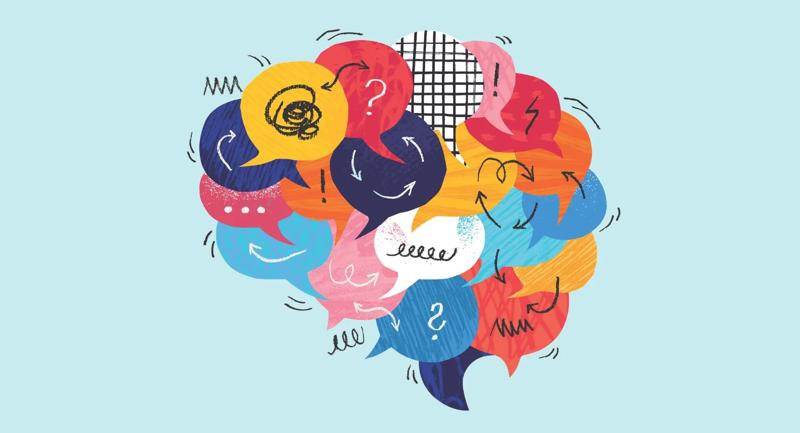The gap between education research and practice reflects persistent disconnect. Teachers sometimes feel that researchers are out of touch—too distant from the reality of the classroom to offer useful advice. Researchers read and discuss their work with other researchers but less often with the teachers (and students) upon whom it can have the greatest impact.
Fortunately, the research-practice gap promises to narrow as more and more teachers become researchers in their own classrooms. Teachers, in collaboration with school leaders and professional researchers, are often in the best position to ask key questions, identify patterns, and distill conclusions from education research. After all, who better to evaluate and test an innovative education solution than the person who directly facilitates student learning?
At EL Education, a nonprofit that provides curriculum and professional development for schools, we work with many teachers and school leaders who are directly involved in our active research projects. The EL research team designs data collection tools for teachers and supports teacher-researchers with analysis and facilitated conversation. Topics vary from social and emotional learning to classroom management to math and reading instruction. Here, we share four lessons we've learned from our teacher-researcher partnerships.
1. Ask Deep Questions.
Veteran teachers are rightly skeptical of flavor-of-the-week strategies for fixing learning challenges. These teachers are well-positioned to ask deep questions about why instructional strategies and schoolwide practices succeed or fail. Given high-quality tools and time to conduct and learn from research, veteran teachers are eager to implement changes that increase students' learning and engagement.
High-quality research begins with a clear question from which a theory of action can ensue. For example, the Building Equitable Learning Environments (BELE) project, a three-year project examining how instructional practices in an advisory class can be an engine for equity, began with the question: What builds students' sense of "belonging" in school? EL Education researchers partnered with teachers at six schools to survey students in the fall, implement instructional strategies in response to the data, and then, in the spring, repeat the survey and conduct focus groups to learn how students responded to the strategies. The focus group data showed that students of color were significantly less likely to feel they belonged at school than white students.
The teachers recognized that they needed to ask even deeper questions: Do all students define "belonging" in the same way? Do strategies that build "belonging" for white students affect students of color differently? How do race and gender shape students' perception of structures intended to support social and emotional learning? Teacher-researchers in these schools are now engaged in a Plan-Do-Study-Act cycle—a deeper dive based on the first round of data—to test their ideas and determine whether changes in their practice increase all students' sense of belonging.
The greatest value of the BELE project has been what it revealed about the benefits of teachers-as-researchers. By researching and analyzing data themselves—prioritizing teachers' ownership of the data and its implications over teaching character perfectly—teachers and leaders learned how to research using professional tools. This often means slowing down—gathering accurate and reliable data that aligns with the question teachers want to answer, grappling with it in a network of peers outside of their silos, looking at the problem from new angles, and honing precise conclusions.
2. Listen Without Judgment.
The complex interplay of teaching and learning is hard to measure. Every classroom features a unique combination of demographics, time structures, resources, and personalities that affect the educational processes and their outcomes. Consequently, it's hard to generalize definitively about how students learn specific methods, structures, or content. (This is especially true about research on character education or social and emotional learning.)
That's where qualitative data from interviews and focus groups can supplement quantitative data from standardized tests and multiple-choice surveys. For example, EL Education wanted to find out why schools in our network had such variable timelines with improvement. A "heat map" of school progress showed that some schools went from start-up to high performance in four years; others struggled to demonstrate excellence after 14 years. Because quantitative student achievement data didn't provide a complete picture, we interviewed school leaders about the specific changes they had made in structures, policies, and practices.
Researchers analyzed the data in collaboration with school leaders. The team identified common conditions that helped schools improve quickly. School leaders learned from one another and from their experiences and took away new insights for improvement efforts. A similar project could be done in any district, starting with these questions: What do teachers and leaders know from their own "frontline" school experience that can't be easily quantified in standard instruments? How might that knowledge shape district and state policies, practices, and regulatory structures?
3. Analyze Data Collaboratively.
When teachers, school leaders, professional researchers, community members, and students analyze data collaboratively, their varied perspectives sharpen the group's understanding of the issues and empower them to implement innovative solutions.
At Capital City Public Charter School in Washington, D.C., an EL Education school, principal Laina Cox regularly leads data conversations with her instructional leadership team, which includes grade level team representatives. They analyze a variety of student performance data—obtained from classroom walk-throughs, surveys, and standardized tests—to inform decisions about instruction and schoolwide practices. This video shows the instructional leadership team reviewing data about how students use their independent learning time.
As Cox emphasizes, asking deep research questions, risking vulnerability when discussing the results, and staying focused on growth leads to measurable improvement over time. What makes it worthwhile for teachers is knowing that they'll have a role in finding solutions that go beyond their own classroom; as data often get published or shared, research also enables teachers to have an impact on their profession.
4. Put Research to the Test.
Often when we gather data over time, we revise our conclusions. In the "laboratory" environment of a school—where staff, curriculum, standards, and student demographics are always in flux—research application is an evolving endeavor.
Leaders at Amana Academy, in Alpharetta, Ga., use a suite of EL Education progress-monitoring tools based off the three Dimensions of Student Achievement to assess the quality of instructional practices and school culture. They use walk-through data and student survey data to understand students' perceptions about everything from how teachers group students to whether students feel included socially. Then, leaders engage instructional coaches and teachers in reflecting on the data and identifying priorities for faculty learning and teaching strategies. Inviting teachers to notice data patterns and to visit one another's classrooms to see research in context is empowering, according to the school's principal, Cherisse Campbell. "The research shows that if these things are done … with an understanding of the specific needs of the community, then together our understanding [of these practices] can make a difference for kids," she said.
Campbell's comment goes straight to the heart of why we think it's valuable to partner with teachers in conducting education research. Research may be the fuel of the continuous improvement engine, but educators themselves are the engine. By working together, researchers and educators can keep the focus of questions and answers on making a positive difference for students.




